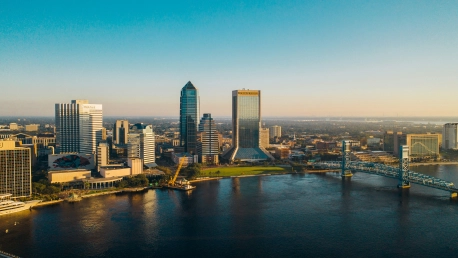The Florida Public Service Commission (PSC) plays a vital, albeit often unnoticed, role in shaping the state’s energy future. As regulators of electricity and overseers of utility operations, their decisions directly influence the economic and environmental well-being of Floridians. With climate change challenging global sustainability, the PSC’s choices become even more consequential. They have the power to set utility rates, affecting how much residents and businesses pay for energy, and they also determine the direction of Florida’s energy infrastructure. These pivotal decisions have lasting impacts, not only on current utility costs but also on ensuring that Florida’s energy sources remain viable and responsible for future generations. The PSC’s discreet authority has profound implications, making their governance vital to the state’s progress in an era facing ecological uncertainties.
The Regulatory Powerhouse Underpinning Florida’s Energy
In an era where electricity is indispensable, the power vested in the Florida PSC cannot be overstated. With the authority to dictate the electricity prices set by utility companies, the commission holds a substantial degree of control over both the financial pulse of the state and its environmental health. The five appointed commissioners have the power to approve or deny rate changes, fundamentally dictating the cost of living for Floridians and influencing the growth patterns of industries and communities.Yet, despite the enormous sway of the commission, the general public is largely uninformed about its workings. Commissioners like Art Graham and Gary Clark often deliberate on matters behind closed doors, adhering to strict state laws that limit open rate case discussions. This opacity can lead to a perception of the PSC as an elusive entity, with its intricacies and pivotal decisions going unnoticed by those who are most affected by their outcomes—everyday residents and business owners.
Decisions That Lock in Florida’s Environmental Future
Florida’s Public Service Commission (PSC) wields significant influence on state energy decisions, a role extending beyond setting utility rates to shaping environmental impacts. As Florida heavily relies on natural gas for electricity, each decision to build new power plants could lock in the state’s energy profile, affecting carbon emissions and possibly delaying the adoption of renewable sources.The PSC’s technical appearance belies its highly impactful nature. The presence of the Office of Public Counsel ensures consumers have a voice against powerful utility companies. The balance of consumer interests and utility regulation remains a hot topic, with critiques of the PSC’s leniency towards utilities contrasted by its own claims of protecting consumer interests. The overarching query remains: are the energy policies of today fulfilling the needs of present and future Florida residents?
The Fine Balance of Economic and Environmental Concerns
Florida’s Public Service Commission (PSC), responsible for overseeing utilities, is increasingly scrutinized due to growing concerns over climate change and sustainable energy. The commission faces crucial decisions, especially regarding rate hikes from Duke Energy and Tampa Electric, alongside the proposed reductions in fuel adjustments with natural gas prices stabilizing. Balancing economic needs and environmental sustainability is at the heart of the PSC’s role. While it doesn’t legislate energy policy, the PSC’s regulatory decisions significantly influence Florida’s energy future. Their choices impact not only electricity costs but also signal Florida’s environmental commitment and ecosystem health. As the PSC deliberates against the backdrop of urgent climate issues, its impact is felt profoundly, potentially leading Florida toward a greener and more resilient future.









